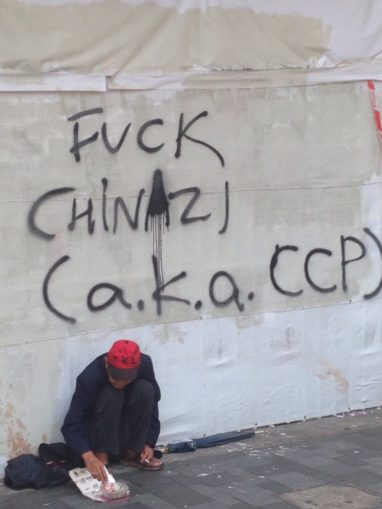
The recent ‘Hong Kong Protests’ piece attracted several comments and questions, but notably ‘Why now?’ and ‘What started this?’ So here is ‘Hong Kong Protests – the Prequel’.
A long time ago, during the premiership of Margaret Thatcher, the long term future of Hong Kong was looming. The British had two main leases on Hong Kong Island and (Kowloon) New Territories, the first in perpetuity and the second until 1997. To keep even part of Hong Kong beyond this needed goodwill from China and even drinking water via pipeline from the mainland. In short, it wasn’t an option.
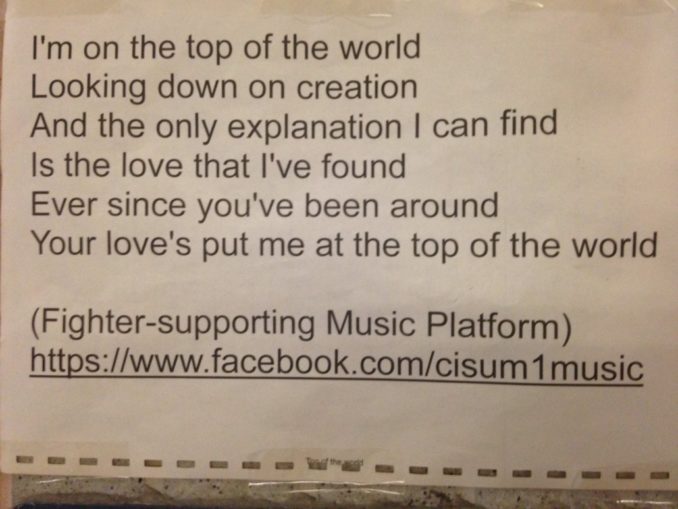
China then was not as China is now. President Deng Xiao Ping, guided by Taoism, had previously said that China should “hide your full capacity, bide your time…” or as we might say hide its light under a bushel. So China was inward looking, looked to its own resources, and very conservative in foreign policy. Was.
The two leaders agreed a treaty in 1984 whereby China would take over Hong Kong in 1997. While a steady trickle migrated after this, many Hong Kongers saw the change as an opportunity, since Hong Kong would likely lead the mainland in terms of distribution, financial services etc. Deng knew this, and so Hong Kong was to become a Special Administrative Region of China, retaining its own currency, passports and some democratic privileges under the ‘Basic Law’. To this day, it is much easier for Hong Kongers to go to and from the mainland than it is for mainland Chinese to do the opposite. The treaty covered fifty years from the handover, ie until 2047.
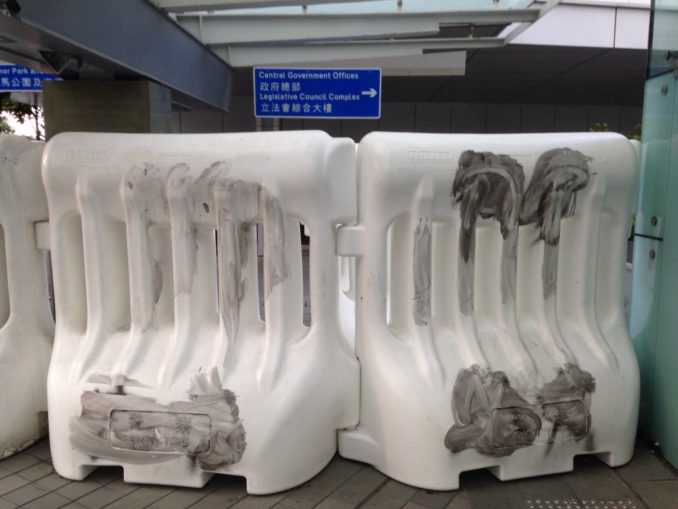
By the time of the handover in 1997, however, China had already changed. Deng was gone and president Jiang Zemin had realised that the chronic under-performance of the China economy under communism had to be addressed. China being China, the solution to this was distinctive. Beijing University academic Zheng Weiying tells a great story (1) to illustrate the change involving (communist) horses being painted with stripes to imitate, but not become, (capitalist) zebra. At least, that’s the story. But the upshot of this was that the Chinese had offered its population a new freedom – the freedom to get rich – in exchange for giving up any prospect of political freedoms. The communists had felt threatened by Tiananmen Square in 1989 and this was their way of buying off the population.
Hong Kong’s pre-eminent position as finance hub was soon challenged by Shanghai, and as distribution hub by Shenzhen, and though Hong Kong’s economy remained strong its relative importance did not grow. Mainland money fuelled an almighty boom in property prices to levels that make London look cheap, though, and a feeling of uncertainty slowly formed. In 2014, Hong Kong’s long promised universal suffrage, embedded in the Handover treaty, was finally put forward, but with one proviso: Hong Kongers would only be allowed to vote for pre-approved candidates for the post of Chief Executive. This was a definition of universal suffrage with which nobody had previously been familiar, of course, and the Yellow Umbrella protests followed. The most striking feature of these was the presence of so many teenagers and students, none of whom had any real memory of Hong Kong as a British colony. The occasional waving of a colonial flag in protests is more to annoy Beijing than an expression of past loyalty.
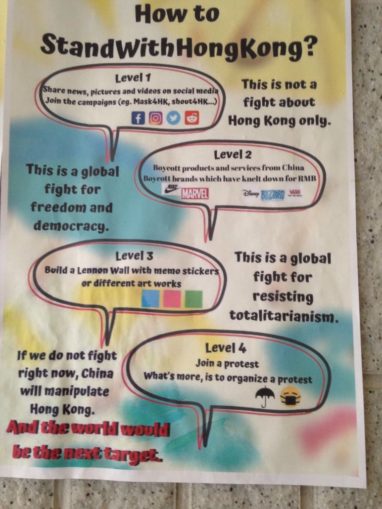
These young Hong Kongers, now the protesters of 2019 as well, have in some cases the idea that their parents in some way ‘sold out’ Hong Kong to the mainland. This causes friction between generations, but the main target of the protesters is of course what is seen as the dictatorship of Beijing. We noted above that the mainland Chinese were given economic freedoms in exchange for a lack of political and democratic rights. Hong Kongers see rights being taken away, but since they already had economic freedoms they are getting nothing in return. Having rights taken away with nothing in return starts to look and feel like an occupation……..
Meanwhile, the protests continue. In the last week, there have been another two shootings with live rounds. A 70 year old cleaner was killed by a brick thrown during clashes between pro and anti Beijing crowds. (How many 70 year olds in Hong Kong are working as cleaners? Many, since this very rich city is very unequal).
Some unlikely targets emerge: Starbucks are ‘attracting attention’ from the protesters, usually in the form of broken windows. Why? The USA is a potential ally, yes? But the Starbucks franchise in Hong Kong is largely taken by Maxims, a massive locally controlled caterers. The figurehead is the daughter of the founding family, one Annie Wu, who is chair of a pro Beijing organisation here. She recently went to the UNHCR in Geneva to slag off the protesters, referring to them as criminals. And so, via Maxims, Starbucks becomes an unwitting target.
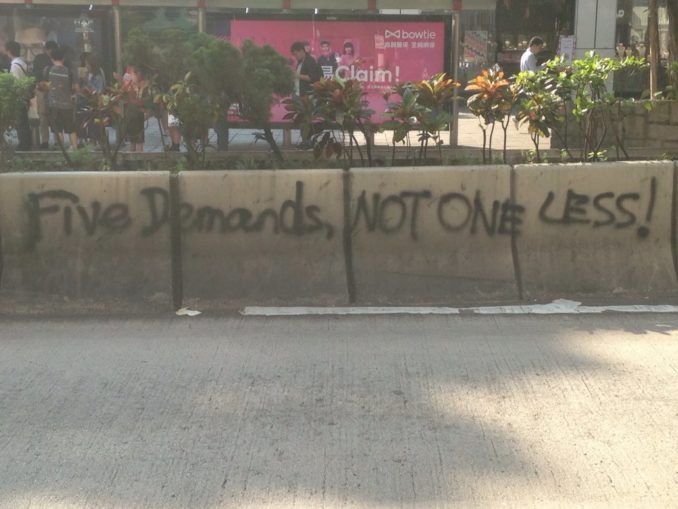
The Hong Kong government, meanwhile, lurches from response to inconsistent response and is unconvincing. It is well known here (though not widely reported) that the HKSAR government asked five PR firms to tender for giving advice and handling media. All five refused even to submit a bid.
So conciliatory speeches are followed by threats of shootings and banning protesters from standing in elections. Schools are closed for a week, but this is announced as one day, then another day, then another two days. Trains stop at 10 pm on Saturdays (instead of 1 am) alongside calls for normality. And the Hong Kong economy drops into recession while protesters use ropes to drop onto the backs of motorcycles to escape police firing tear gas.
This will not end well.
Pdf – Painted Horses. Reform Culture and the Phenomenon of Partial Reform
Featured Image: “Almost all police in the operation were masked , and did not display any police identity card nor batch showing the individual staff number.” Etan Liam – Licence CC BY-ND 2.0
© Hongkonger 2019
The Goodnight Vienna Audio file
Audio Player



